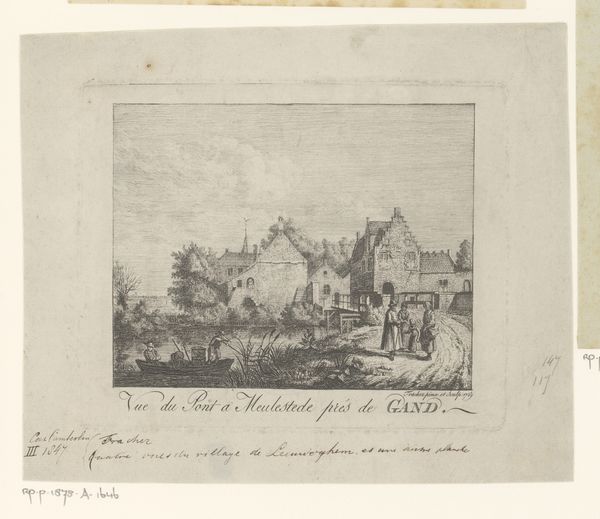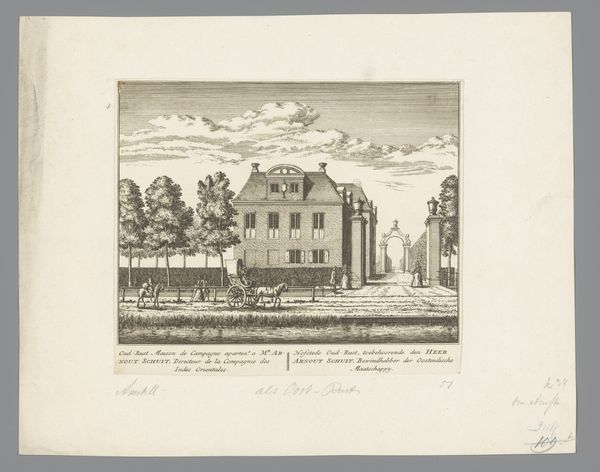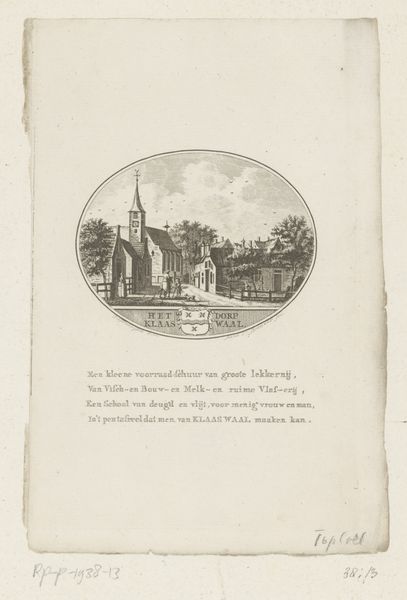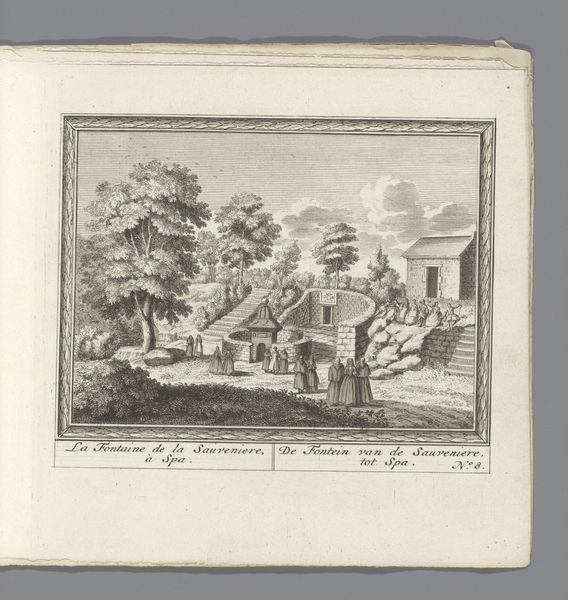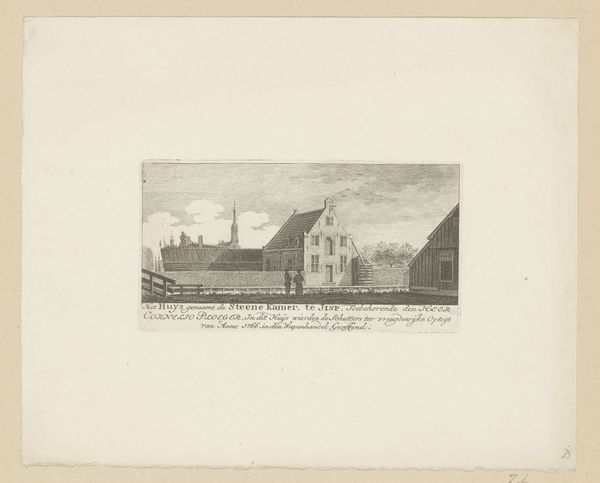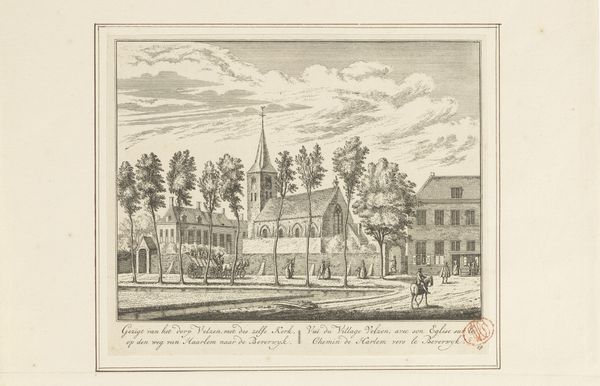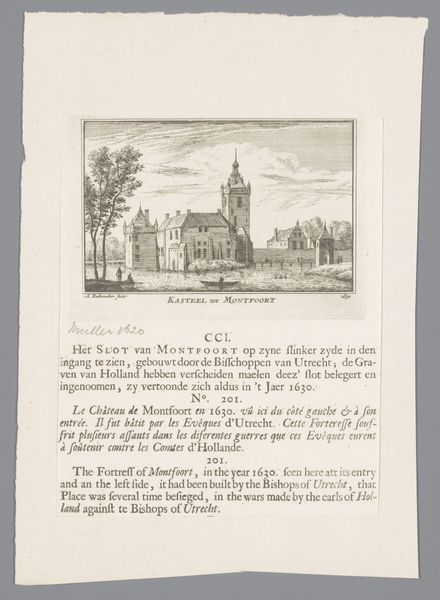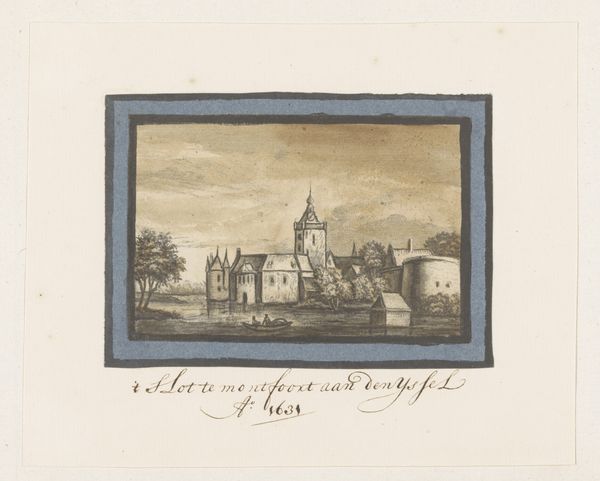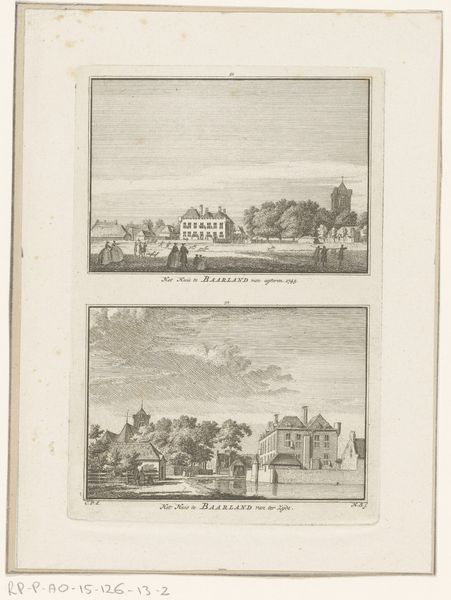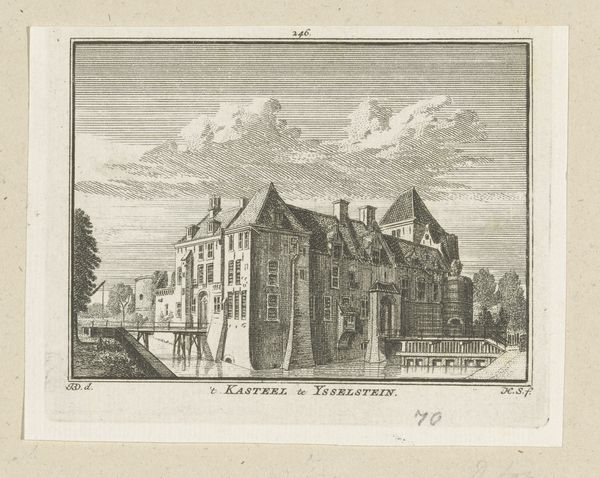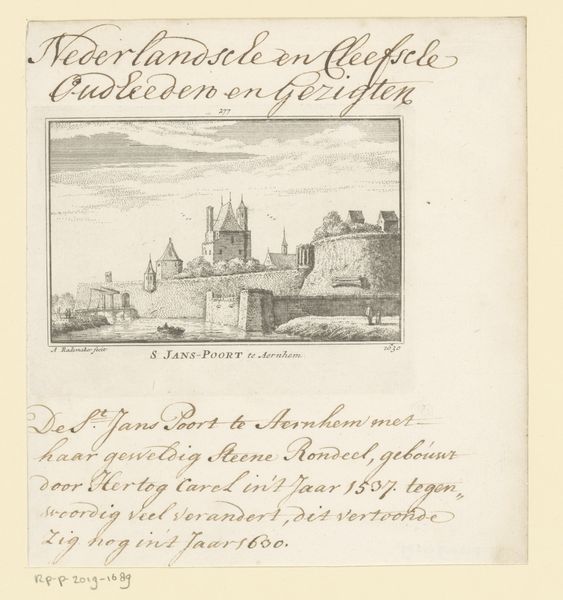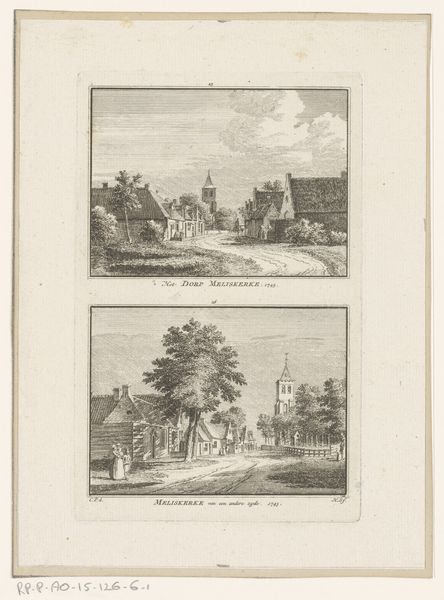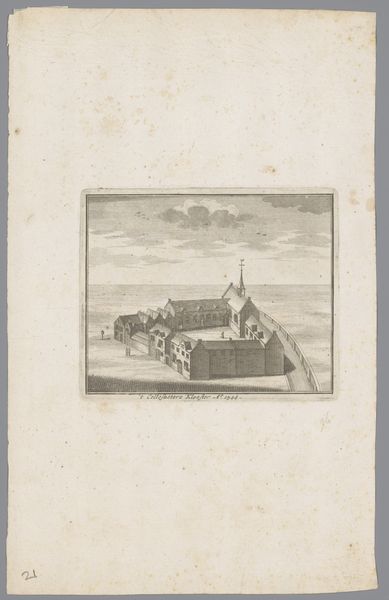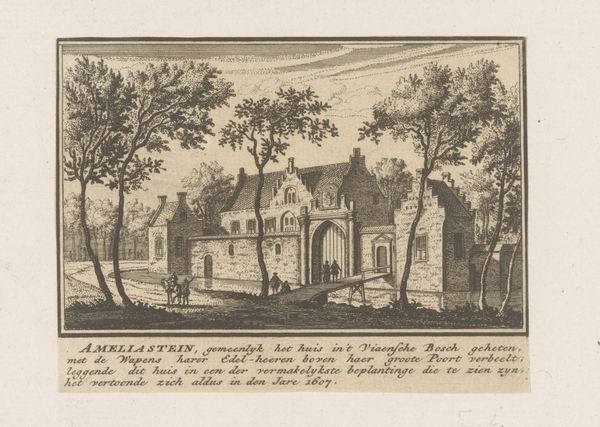
Gezicht op het Valkhof en de Sint Maartenskapel of Barbarossa-ruïne te Nijmegen, 1670 1725
0:00
0:00
abrahamrademaker
Rijksmuseum
drawing, paper, ink
#
drawing
#
baroque
#
landscape
#
paper
#
ink
#
cityscape
Dimensions: height 81 mm, width 113 mm, height 183 mm, width 140 mm
Copyright: Rijks Museum: Open Domain
This print, made around 1670 by Abraham Rademaker, captures the Valkhof ruins in Nijmegen. It was created using etching, a printmaking technique that relies on the corrosive action of acid. Rademaker would have coated a metal plate with a waxy, acid-resistant substance, then scratched an image into the coating with a fine needle. The plate was then immersed in acid, which bit into the exposed metal, creating recessed lines. Ink was then applied, filling these lines, and the image transferred to paper under pressure. The character of this print emerges directly from this laborious process. The intricate lines, built up through careful work, convey the crumbling stone of the Valkhof and the delicate foliage. This technique allowed for the relatively quick and inexpensive reproduction of images, making them accessible to a wider audience, and reflecting the growing market for topographical views in the 17th century. The print is not just an image, but a material record of labor and a reflection of its time.
Comments
No comments
Be the first to comment and join the conversation on the ultimate creative platform.
